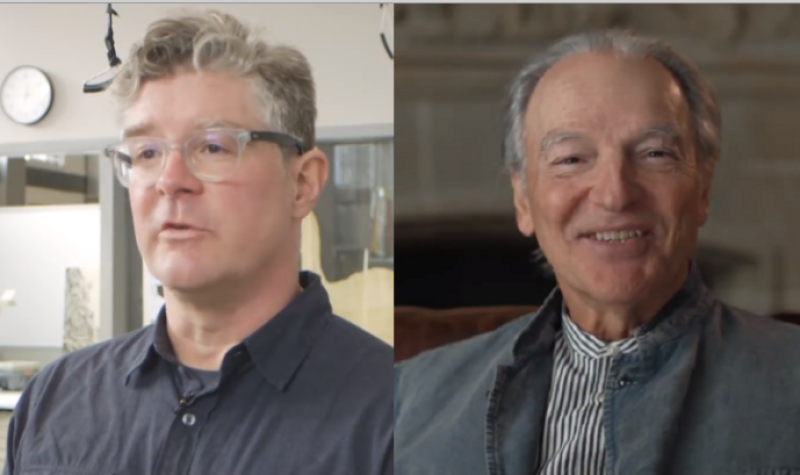Mount Allison University recently received a $5-million donation to its fine arts department by way of businessman Pierre Lassonde.
CHMA and Warktimes collaborated to discover how those millions will impact fine arts programming, and the controversial source of Lassonde’s wealth.
The fine arts program, which will hereon be named the Pierre Lassonde School for Fine Arts after its benefactor, will introduce a recurring artist-in-residence and internship opportunities for incoming students.
Erik Edson, head of the department, says that planning is already underway to use the funding for 2021-2022.
If all goes according to plan, the fine arts department will have an artist-in-residence by this time next year.
Mount Allison has had an artist-in-residence program in the past, where artists from all over stay and create work in the community.
The problem with their previous programming, says Edson, was they couldn’t rely on consistent funding.
“We’re not wondering if it will happen the following year, we can have a real continuity and consistency,” says Edson.
The interest generated from the $5-million donation will ensure continuous funding for future artists-in-residence.
The goal of the artist-in-residence program, says Edson, is to bring new perspectives into Mount Allison.
“It’s really important where we are and for the size of our program,” says Edson. “It will renew and bring new ideas every year. Over the course of a four year degree, students will have interacted with four different artists-in-residence. That’s pretty incredible.”
The consistent funding, says Edson, will also benefit the contemporary art community as a whole.
“The program is something that artists will become aware of nationally and internationally. They can apply rather than looking through ads online.”
Another new student-focused program coming soon is the implementation of internships with neighboring institutions.
Edson says the department is still working out which institutions will be involved, but anticipates the internships to be beneficial for students in a number of ways.
“Particularly museum and curatorial studies [students] would be able to go to another institution and engage as an intern at another museum, gallery, or art space in a meaningful way,” says Edson.
Between the new scholarships, awards, and internships, Edson is hopeful that more students with financial barriers will be able to attend the University for fine arts.
The planning of these services are still in early days, but CHMA will check in with Edson periodically as details emerge.
Bruce Wark of Warktimes spoke with Joan Kuyek, author of “Unearthing Justices: How to Protect Your Community from the Mining Industry,” to unearth the other side of Lassonde’s philanthropy.
Kuyek suggests that the donation is good for Lassonde’s public relations, since his name is now on Mount Allison’s school of Fine Arts.
Tax deductible donations like Lassonde’s can be used, says Kuyek, to veil the devastating environmental consequences of mining.
Lassonde’s fortune comes from the gold mining industry, and he even has a place in the Canadian Mining Hall of Fame.
He has ties to mines internationally, including ones in Mexico, Indonesia, Peru and Romania.
Wark also spoke with international politics professor at Mount Allison, David Thomas, who helped organize Kuyek’s book promotion event on campus in 2019.
Thomas says that Lassonde’s gift, and ties to environmentally destructive gold mining, speaks to his larger concern about big businesses’ impact on universities.
He did not say that Mount Allison should have refused the gift, but does not think that Lassonde’s name should be on a school.
Mount Allison’s Vice President Gloria Jollymore did say that that university has guidelines when it comes to accepting donations to ensure no damage to their reputation.
While she is interested in a discussion about philanthropy in universities, she and Thomas disagree on the point of naming the School of Fine Arts after Lassonde.
Jollymore says that Lassonde’s long history of supporting the arts warrants attaching his name to the donation.
Lassonde has gone on record in the past about the controversies surrounding gold mining, and says that environmentalists and other critics stir up opposition in developing countries where people don’t really understand the positive aspects of mining.
Hear this story as reported:


